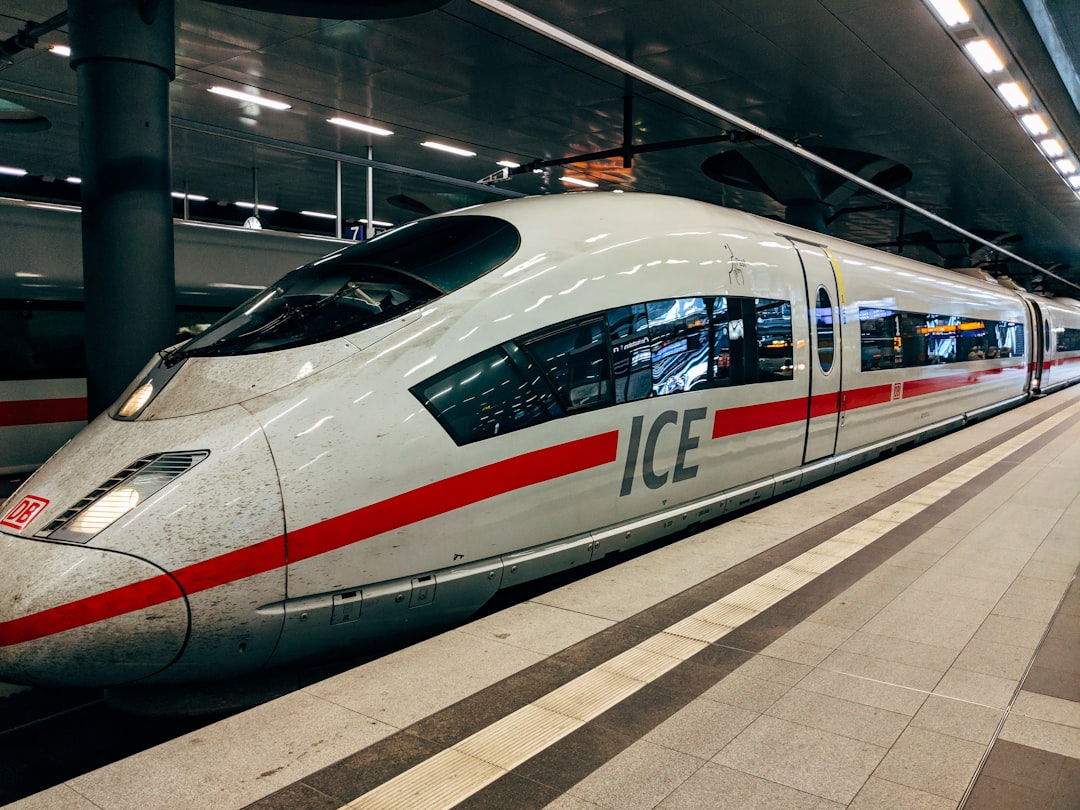Germany in decline: why the country’s old model is failing
The Federal Republic's reputation has suffered badly over the past 10 years.
A decade ago, Germany was on top of the world. In the middle of a second Wirtschaftswunder, unemployment had hit record lows while the economy was booming on the back of strong exports into the EU single market, to China, and to the US. The car industry dominated global markets, pharmaceutical firms were swallowing up international competitors, and a host of medium-sized firms were expanding their operations across the globe.
The public trusted their leaders to make the right choices, and the governing class, in turn, trusted the public to act like adults.
Germany appeared to have found the Goldilocks formula for public life. A responsible state kept its public finances in check while managing to provide high-quality public services. Crime was low, even while the police and intelligence services worked with a light touch. Workers were given time off for childcare, a generous minimum wage, and ample public holidays. Corporate responsibility seemed to be high on the agenda.
At a time when revelations of spying at the NSA had shaken America, the British public’s every move was recorded on CCTV, and France was plagued by rioting and terrorism, Germany seemed to show a different, more enlightened, way of managing society. At the same time, its banks and corporations had largely emerged from the financial crisis of 2008 with their reputations intact.
In the arts, a country that had been seen as a cultural backwater for decades was suddenly the place to move to. Driven mainly by the reputation of Berlin’s nightlife, young people flocked to the country. Munich and Berlin regularly cropped up at the top of lists of the world’s “most liveable cities,” due to the fact that, in international comparison at least, rents were cheap, parks were clean, and public infrastructure largely worked. The faces of German cities rapidly changed, as migrants and expats answered the Federal Republic’s call for workers.
This article explains how that confidence unravelled: why Germany’s economic model stopped delivering, how a decade of policy choices hollowed out state capacity and competitiveness, and why reversing the decline will be far harder than many politicians now admit.
There are several moments you could point to when the gleam started to come off Germany’s polished reputation. Was it the moment in the autumn of 2015, when US regulators accused Volkswagen of a multi-billion-euro system of fraud in which it had deliberately manipulated emissions readings for its diesel engines? The fact that this fraud was never uncovered in Germany raised uncomfortable questions.
Those only seemed to be confirmed when, a few years later, a British newspaper revealed that the rising star of German finance, online payment processor Wirecard, was in fact an elaborate money laundering scheme. Again, German regulators had completely dropped the ball.
Accelerating migration after 2015 also appeared to undercut public faith that the government was finding the right balance between serving the needs of labour market and maintaining public order.
A swift response to Covid initially restored the public’s faith that “Germany does it better.” But, as the pandemic went on, it remorselessly exposed how outdated public administrations were, with local health bodies relying on fax or outdated software systems to communicate with federal authorities.
By the end of the twenty tens, migration into the major cities had caused a full-blown housing crisis. Rents started to soar, undercutting one of the main advantages Germany once had over other major economies. Rental controls only served to exacerbate the problem.
Within months of Angela Merkel leaving office, the German public became obsessed with the question of whether her reign had actually been a disaster.
It suddenly occurred to people that the trains never seemed to arrive on time anymore, and the roads were full of potholes. Too much had been spent on welfare and too little on infrastructure. Why had she failed to reform a pension system that was being propped up with €100 billion out of the federal budget every year?
Meanwhile, in outsourcing defence to the US, buying energy from Russia, and targeting China as its major market, Germany had bet on a world in which America remained an uncontested hegemon and everyone else continued to play by its rules.
At heart, Germany’s problem is that the economic model which powered its post-war success — cheap energy, open export markets, demographic stability and an efficient but limited state — no longer exists. Yet policy for much of the past decade has continued to assume that it does.
The complacency that had been revealed at the government level was also exposed in the boardrooms of its flagship industry. German carmakers missed the boat on electrification, meaning that their sales in East Asia started to plummet.
Beyond that, though, there was a certain inevitability to the fact that the 2010s would be the high point of this second Wirtschaftswunder. The baby boomers were still working, meaning that Germany’s workforce was better educated and more plentiful than it had ever been—or would ever be again. As the baby boomers began to retire, the pain was twofold: ever-larger gaps appeared in the workforce, and the pension burden on the labour force grew.

The varnish has now well and truly worn off. 2025 is set to be the third year in a row that the German economy shrinks — an unparalleled sequence in the post-war era. Unemployment is going back up, even as labour shortages rise. Radical parties on the left and right won a third of the vote at the 2025 election.
An annual ranking among expats of top work destinations has seen Germany plummet from 12th to 50th between 2014 and 2014. Whereas in 2014, expats praised the country’s peace and stability, in 2024 they were worried about rising crime and political instability.
Can Germany turn things back around?
For some economists, the angst over Germany’s demise is exaggerated. They argue that the fundamentals of the German economy—a highly educated workforce and a diversified industrial base—are still strong. The only thing Germany should fear is fear itself, they say.
Others argue that only a radical overhaul of a bloated state can turn things around. We’ve been here before, they say. Germany was in a bad state at the start of the century, before labour reforms set the foundations for the growth of the Merkel era.
To some extent, the key to Germany’s future doesn’t lie in its own hands. A world in which competing power blocs use tariffs or military force to try to force concessions out of competitors is one in which Germany will have to completely re-invent itself and start telling new national myths.
Domestically, the incoming German government hopes to solve some of the issues that have worn down the country’s reputation for efficiency and pragmatism. A €500 billion fund has been set up to modernise Germany’s basic infrastructure. A new ministry for state modernisation has been tasked with bringing bureaucracy into the 21st century.
Can all this new cash help Germany to perform its own “great leap forward”? On the one hand, the relative frugality of the Merkel era means that Germany has more wiggle room in its public finances than other major economies. Well spent, that half a trillion euros could be used to overhaul roads and rail tracks, and to trigger a surge in affordable housing.
Critics worry, though, that the money will only aggravate a fundamental weakness in the economy: labour shortages. The result, they say, will be higher inflation—and an even speedier decline for Europe’s fading powerhouse.
Why is Germany (so unexpectedly) in decline?
It has been a decade since I moved to Germany. This is what has changed.
Can Germany's rotten rail system be fixed?
Deutsche Bahn is a drain on the public purse... and its trains are chronically unreliable.








I think the challenges for Germany, the US and perhaps the rest of the world are very similar.
In the summer of 2017 I attended a village fest and concert. This was a few months before Angela Merkel's four election as Chancellor. The band's frontman launched into "We're not going to take it, anymore", all the while giving Trump his middle finger and urging the audience to do the same. Given the problems in Germany and an election coming up, I could only wonder why? Now, I never liked Trump, but I did vote for him twice, something about the other candidate bothered me more... Does this sound familiar ? On January 6th 2021, that changed as he broke his oath of office to "protect the Constitution". Why were these local Germans not more concerned with their own leaders?
People decry the AFD, yet the AFD is the only party that has long addressed serious issues that affect German citizens (IMHO), until recently. When Mr Merz moved to address some of those issues, the other parties made an uproar about his party (joining the radicals of AFD?).
Here is my question for German history experts: The National Socialist Party (Nazis) did many horrible things, they also drug Germany out of the "Great Depression". Would it have been possible to do that without all the rest, especially without the destruction of German democracy and beginning another World War? I dare believe that stopping those two would have prevented the other horrors.
Looking forward to your comments on any of the above.
Paid subscribers sure afraid of free content free speech